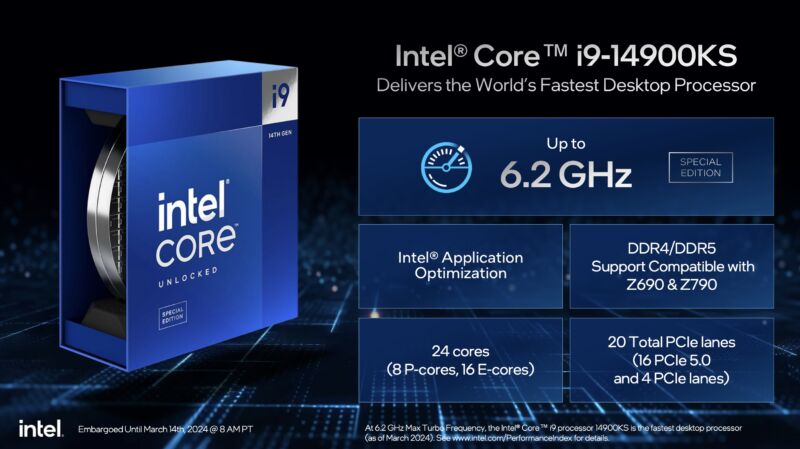Intel’s 6.2 GHz Core i9-14900KS is a reminder of why the MHz wars ended

Enlarge (credit: Intel)
PC enthusiasts who have been around the block a couple of times might remember the stretch from the '90s into the early 2000s when ever-increasing clock speeds were Intel's primary metric for increasing processor performance. AMD participated, too-it managed to beat Intel to 1 GHz in what was considered a major coup at the time-but Intel's Pentium 4 processors specifically prioritized boosting clock speeds at the cost of instructions-per-clock.
Today, the company is ever so briefly revisiting those old days with the $689 Core i9-14900KS, its newest flagship desktop processor. The i9-14900KS can hit speeds of 6.2 GHz out of the box, a small push past the last-generation i9-13900KS and the i9-14900K that topped out at 6.0 GHz. Like other recent high-end Intel desktop chips, it also features Intel's "Adaptive Boost Technology," which will allow the chip to increase its power consumption and performance until it hits 100 Celsius.
This kind of clock speed boosting is both impressive and impractical. On the one hand, Intel has managed to push clock speeds even higher without changing its architecture or manufacturing process, a culmination of years of iteration across the 12th-, 13th-, and 14th-generation processor families. On the impractical side, the i9-14900KS can use a ridiculous amount of power to achieve marginally faster performance, reminding us of the laws of physics that helped shut down the megahertz wars in the first place.